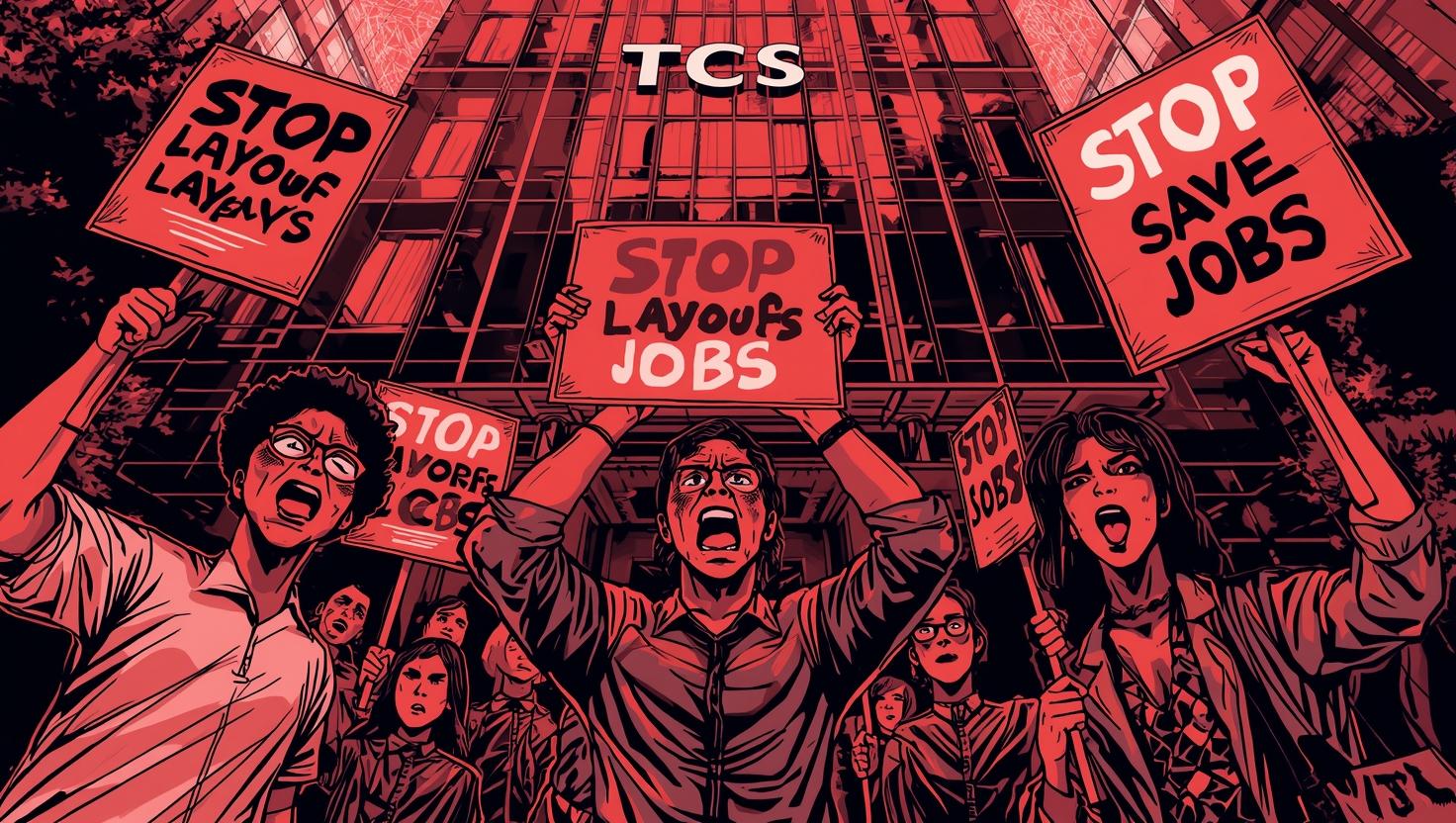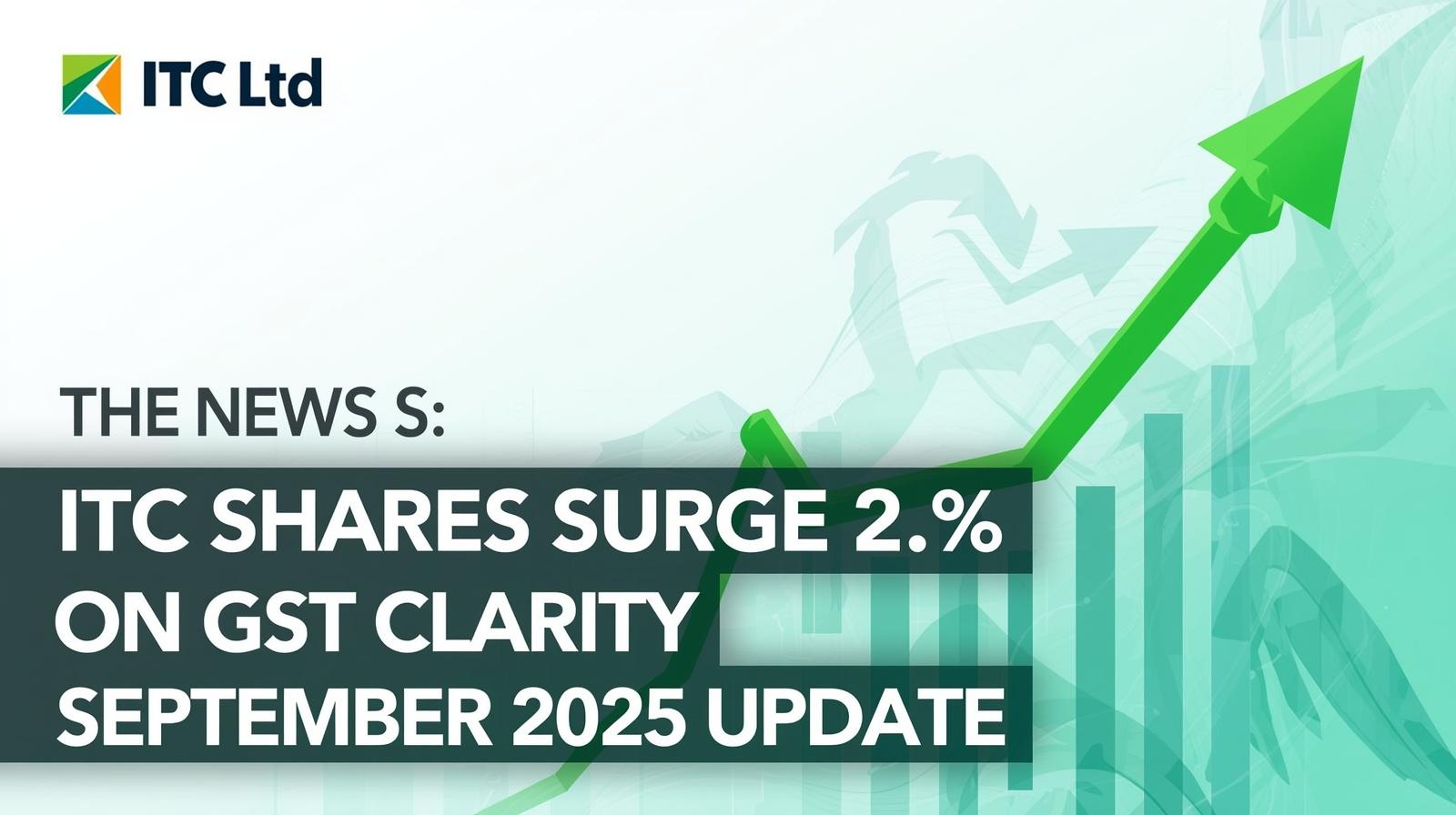India’s largest IT services company, Tata Consultancy Services (TCS), is facing strong backlash as employees’ unions and worker groups protest against what they describe as “mass layoffs.” Demonstrations have erupted across major IT hubs, with trade unions claiming that up to 30,000–40,000 employees may lose their jobs.
TCS, however, has denied these numbers, stating that only about 12,000 roles (2% of its workforce) are being restructured as part of its business realignment strategy.
🚨 What Triggered the Protests?
-
Union Allegations
-
The Union of IT & ITES Employees (UNITE), supported by the Centre of Indian Trade Unions (CITU), alleges that TCS is systematically targeting mid- and senior-level employees, forcing them out to replace them with freshers at 80–85% lower salaries.
-
UNITE claims the actual scale of layoffs is far larger than TCS admits, potentially impacting up to 40,000 workers.
-
-
TCS’s Stand
-
TCS has acknowledged layoffs but pegged the figure at 12,000 employees globally, calling it a strategic restructuring to focus on cloud computing, AI, and digital transformation.
-
The company says it is providing severance packages and transition support to affected staff.
-
-
Employees’ Anger on Ground
-
Some protests have turned highly symbolic. In Pune, one affected employee reportedly slept outside his office building demanding unpaid dues.
-
Workers argue that layoffs are being conducted unfairly, without proper performance review or reskilling opportunities.
-
🏛️ Government & Union Action
-
The National Information Technology Employees Senate (NITES) has formally written to Union Labour Minister Mansukh Mandaviya, seeking an immediate halt to terminations.
-
The Labour Department in Karnataka has also initiated conciliation proceedings under the Industrial Disputes Act, 1947, after several grievances were filed.
-
Unions are demanding that the government intervene and frame stronger laws to protect IT employees, who often fall outside traditional labor protections.
📊 The Numbers in Dispute
| Source | Estimated Job Cuts | Statement |
|---|---|---|
| TCS Management | ~12,000 (2% workforce) | “Restructuring for future-ready workforce; providing support to employees.” |
| UNITE & CITU | 30,000–40,000 | “Large-scale job cuts targeting experienced workers; freshers being hired cheaper.” |
| NITES (Union) | 12,000 immediate risk | “Stop all layoffs; unfair termination practices in IT sector must end.” |
🌍 Wider Industry Context
TCS isn’t alone—other IT giants like Infosys, Wipro, and Cognizant have also slowed hiring or streamlined operations due to:
-
Weak global demand for IT services.
-
The shift to automation, AI, and digital platforms.
-
Rising costs of retaining senior talent compared to freshers.
This restructuring trend has sparked fears of a job crisis in India’s IT sector, which employs millions and is considered one of the nation’s strongest export-driven industries.
⚡ Key Takeaways for Traders & Investors
-
Stock Market Impact: While TCS stock hasn’t seen a crash, persistent protests and government intervention could trigger short-term volatility.
-
Investor Watchpoint: Any indication of delayed project deliveries or negative foreign client sentiment due to employee unrest may pressure the stock.
-
Long-term Outlook: TCS’s focus on AI, cloud, and digital services suggests the company is preparing for the future, but the social cost of layoffs may dent its brand value.
❓ What’s Next
-
Global Action: Unions are planning to extend protests internationally, targeting TCS’s global offices.
-
Legal Scrutiny: Government conciliation and possible court battles may follow if terminations continue.
-
Employee Sentiment: With morale shaken, TCS may need to balance cost-cutting with talent retention to avoid further backlash.
📌 Conclusion
The TCS layoffs protest represents a flashpoint in India’s IT industry. On one side, companies argue for restructuring to stay competitive in a fast-changing tech landscape. On the other, employees and unions see this as corporate greed, where experienced staff are sacrificed for cheaper talent.
How this conflict unfolds will likely set a precedent for the Indian IT job market—shaping policies, labor rights, and investor confidence in the sector.
 Stock Market Disclaimer
Stock Market Disclaimer
- Disclaimer: This post is for informational and educational purposes only and does not constitute financial advice or a recommendation to buy/sell any stock or share. Investing in the stock market involves risk. Past performance is not indicative of future results. Always conduct your own research or consult a licensed financial advisor before making investment decisions.
- The information provided on this platform is for educational and informational purposes only. It should not be considered as investment advice, stock recommendations, or financial guidance.
Stock Market Investments
- Investing in equities, derivatives, mutual funds, and other financial instruments involves market risks, volatility, and the possibility of capital loss.
- Past performance of stocks or indices is not indicative of future returns.
- Always conduct your own research or consult a SEBI-registered financial advisor before making investment decisions.
IPO (Initial Public Offerings)
- IPO details, issue size, subscription data, and allotment status shared here are based on publicly available information from company filings, stock exchanges, and merchant bankers.
- Investing in IPOs carries risks including listing volatility, business uncertainties, and sector performance dependency.
- Neither acceptance of applications nor allotment guarantees profits. Investors should evaluate their risk appetite before subscribing.
GMP (Grey Market Premium)
- Grey Market Premium (GMP) is an unofficial and unregulated indicator of expected IPO listing price.
- GMP data is collected from market observers and informal trading circles; it does not have any legal or SEBI recognition.
- GMP values are highly speculative and may differ significantly from actual listing prices. Investors should not rely solely on GMP while taking investment decisions.
General Advisory
- We do not provide any buy/sell/hold recommendations.
- Readers and investors are solely responsible for their investment actions and decisions.
- This platform, its authors, and affiliates are not liable for any direct or indirect financial loss arising from the use of this information.
Always invest responsibly and diversify your portfolio.




